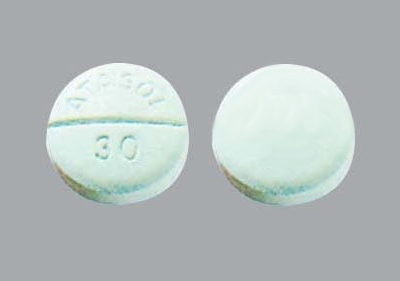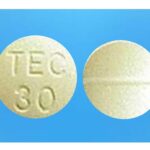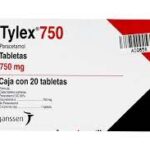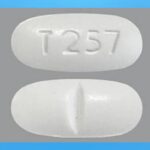Atasol-30: Uses Dosage, Side Effects, Addiction

Atasol-30 is a combination product that contains three medications: acetaminophen, codeine, and caffeine. Acetaminophen belongs to the group of medications called analgesics (pain relievers) and antipyretics (fever reducers). Codeine belongs to the group of medications called narcotic analgesics, while Caffeine belongs to the group of medications called stimulants.
Atasol-30 is used to treat mild-to-moderate pain associated with conditions such as headache, dental pain, muscle pain, painful menstruation, pain following an accident, and pain following operations.
How should I use Atasol-30?
The usual recommended dose is 1 tablet taken every 4 to 6 hours as required. If 1 tablet is not effective, take 2 tablets at the next dose time. The dose should be adjusted according to the amount of pain experienced. The maximum dose of this medication is 12 tablets in 24 hours. Taking more than 12 tablets (or a maximum of 4,000 mg of acetaminophen) in a 24-hour period may cause severe liver damage, and could be fatal.
Atasol-30 may be taken with or without food. Tablets should be swallowed whole. Do not cut, break, crush, chew, or dissolve the tablets, as this may lead to dangerous and potentially fatal side effects.
Many things can affect the dose of a medication that a person needs, such as body weight, other medical conditions, and other medications. If your doctor has recommended a dose different from the ones listed here, do not change the way that you are taking the medication without consulting your doctor.
Acetaminophen should not be taken to relieve pain for more than 5 days or to relieve a fever for more than 3 days, unless directed by a doctor.
It is important to take this medication exactly as prescribed by your doctor. If your doctor has told you to take this medication on a regular basis and you miss a dose, take it as soon as possible and continue with your regular schedule. If it is almost time for your next dose, skip the missed dose and continue with your regular dosing schedule. Do not take a double dose to make up for a missed one. If you are not sure what to do after missing a dose, contact your doctor or pharmacist for advice.
Overdose
If someone has overdosed and has serious symptoms such as passing out or trouble breathing, give them naloxone if available, then call 911. If the person is awake and has no symptoms, call a poison control center right away. US residents can call their local poison control center at 1-800-222-1222. Canada residents can call a provincial poison control center. Symptoms of overdose may include: slow/shallow breathing, coma, seizures, nausea, vomiting, loss of appetite, sweating, stomach/abdominal pain, extreme tiredness, yellowing eyes/skin, dark urine.
What are the side effects of Atasol-30?
Nausea, vomiting, constipation, lightheadedness, dizziness, drowsiness, headache, increased urination, or trouble sleeping may occur. If any of these effects persist or worsen, tell your doctor or pharmacist promptly.
To prevent constipation, eat dietary fiber, drink enough water, and exercise. You may also need to take a laxative. Ask your pharmacist which type of laxative is right for you.
To reduce the risk of dizziness and lightheadedness, get up slowly when rising from a sitting or lying position.
Remember that your doctor has prescribed this medication because he or she has judged that the benefit to you is greater than the risk of side effects. Many people using this medication do not have serious side effects.
Tell your doctor right away if you have any serious side effects, including:
- interrupted breathing during sleep (sleep apnea)
- mental/mood changes (such as irritability, nervousness, anxiety, hallucinations)
- fast/irregular heartbeat
- stomach/abdominal pain
- difficulty urinating
- vision changes
- shaking (tremor)
- easy bruising/bleeding
- signs of infection (such as sore throat that doesn’t go away, fever)
- signs of your adrenal glands not working well (such as loss of appetite, unusual tiredness, weight loss)
Get medical help right away if you have any very serious side effects, including:
- fainting
- seizure
Codeine is changed into a strong opioid drug (morphine) in your body. In some people, this change happens faster and more completely than usual, which increases the risk of very serious side effects. Get medical help right away if you notice any of the following:
- slow/shallow breathing
- severe drowsiness/difficulty waking up
- confusion
A very serious allergic reaction to this drug is rare. However, get medical help right away if you notice any symptoms of a serious allergic reaction, including:
- rash
- itching/swelling (especially of the face/tongue/throat)
- severe dizziness
- trouble breathing
This is not a complete list of possible side effects. If you notice other effects not listed above, contact your doctor or pharmacist.
In the US – Call your doctor for medical advice about side effects. You may report side effects to FDA at 1-800-FDA-1088 or at www.fda.gov/medwatch.
In Canada – Call your doctor for medical advice about side effects. You may report side effects to Health Canada at 1-866-234-2345.
This is a summary and does NOT have all possible information about this product. This information does not assure that this product is safe, effective, or appropriate for you. This information is not individual medical advice and does not substitute for the advice of your health care professional. Always ask your health care professional for complete information about this product and your specific health needs.
Codeine has a risk for abuse and addiction, which can lead to overdose and death. Codeine may also cause severe, possibly fatal, breathing problems. To lower your risk, your doctor should have you take the smallest dose of codeine that works, and take it for the shortest possible time. See also How to Use section for more information about addiction.
The risk for severe breathing problems is higher when you start this medication and after a dose increase, or if you take the wrong dose/strength. Taking this medication with alcohol or other drugs that can cause drowsiness or breathing problems may cause very serious side effects, including death. Also, other medications can affect the removal of codeine from your body, which may affect how codeine works. Be sure you know how to take this medication and what other drugs you should avoid taking with it. See also Drug Interactions section. Get medical help right away if any of these very serious side effects occur: slow/shallow breathing, unusual lightheadedness, severe drowsiness/dizziness, difficulty waking up.
Keep this medicine in a safe place to prevent theft, misuse, or abuse. If someone accidentally swallows this drug, get medical help right away.
One ingredient in this product is acetaminophen. Taking too much acetaminophen may cause serious (possibly fatal) liver disease. Adults should not take more than 4000 milligrams (4 grams) of acetaminophen a day. People with liver problems and children should take less acetaminophen. Ask your doctor or pharmacist how much acetaminophen is safe to take.
Do not use with any other drug containing acetaminophen without asking your doctor or pharmacist first. Acetaminophen is in many nonprescription and prescription medications (such as pain/fever drugs or cough-and-cold products). Check the labels on all your medicines to see if they contain acetaminophen, and ask your pharmacist if you are unsure.
Get medical help right away if you take too much acetaminophen (overdose), even if you feel well. Overdose symptoms may include nausea, vomiting, loss of appetite, sweating, stomach/abdominal pain, extreme tiredness, yellowing eyes/skin, and dark urine.
Daily alcohol use, especially when combined with acetaminophen, may damage your liver. Avoid alcohol.
Before using this medication, women of childbearing age should talk with their doctor(s) about the risks and benefits. Tell your doctor if you are pregnant or if you plan to become pregnant. During pregnancy, this medication should be used only when clearly needed. It may slightly increase the risk of birth defects if used during the first two months of pregnancy. Also, using it for a long time or in high doses near the expected delivery date may harm the unborn baby. To lessen the risk, take the smallest effective dose for the shortest possible time. Babies born to mothers who use this drug for a long time may develop severe (possibly fatal) withdrawal symptoms. Tell the doctor right away if you notice any symptoms in your newborn baby such as crying that doesn’t stop, slow/shallow breathing, irritability, shaking, vomiting, diarrhea, poor feeding, or difficulty gaining weight.
Children younger than 12 years should not use products that contain codeine. Children between 12 and 18 years old should not use codeine after certain surgeries (including tonsil/adenoid removal). Also, codeine use is not recommended for children between 12 and 18 years old who are obese or have breathing problems. Some children are more sensitive to codeine and have had very serious (rarely fatal) breathing problems such as slow/shallow breathing (see also Side Effects section). Talk with your doctor or pharmacist about the risks and benefits of this medication.





